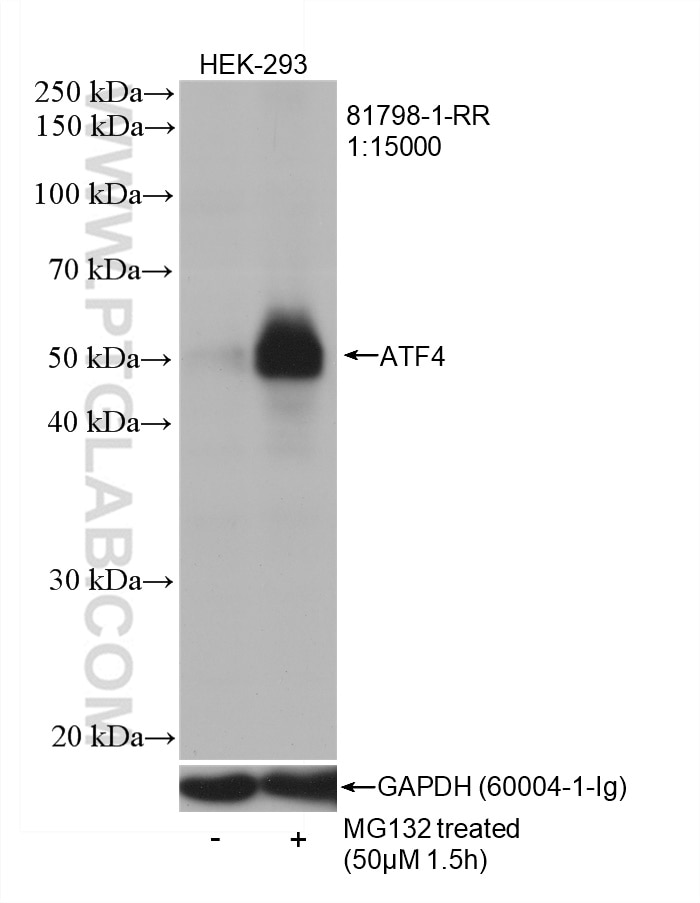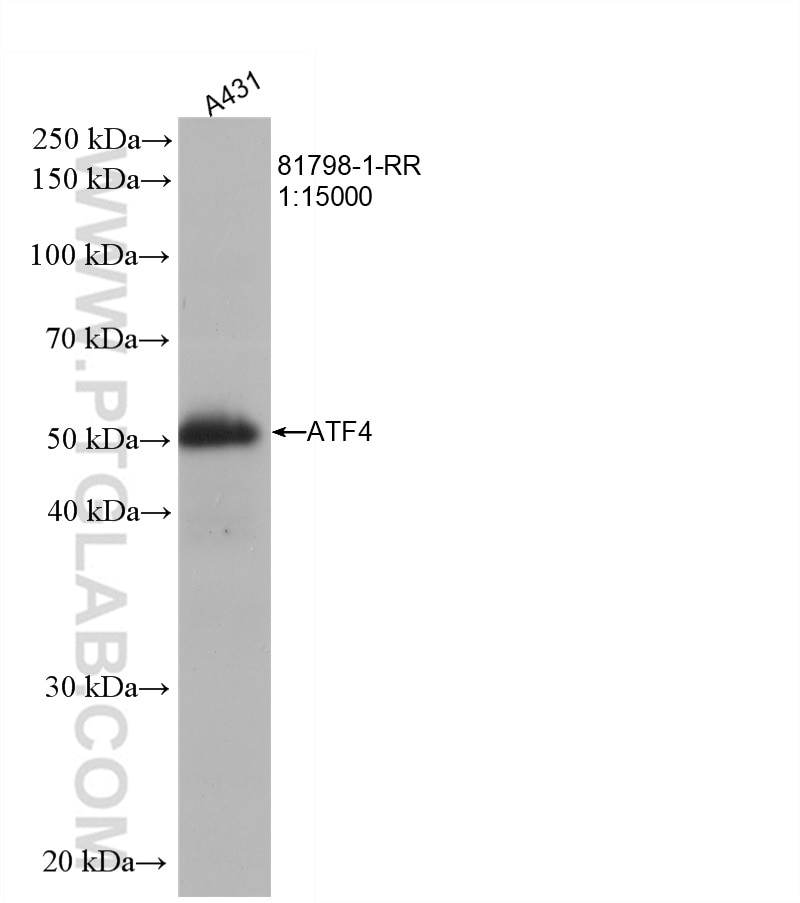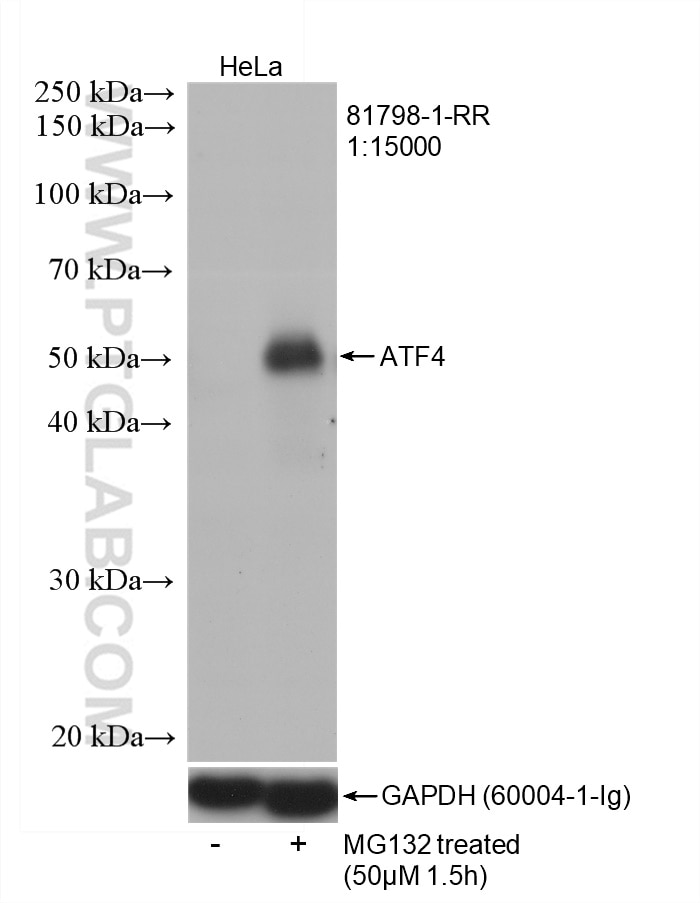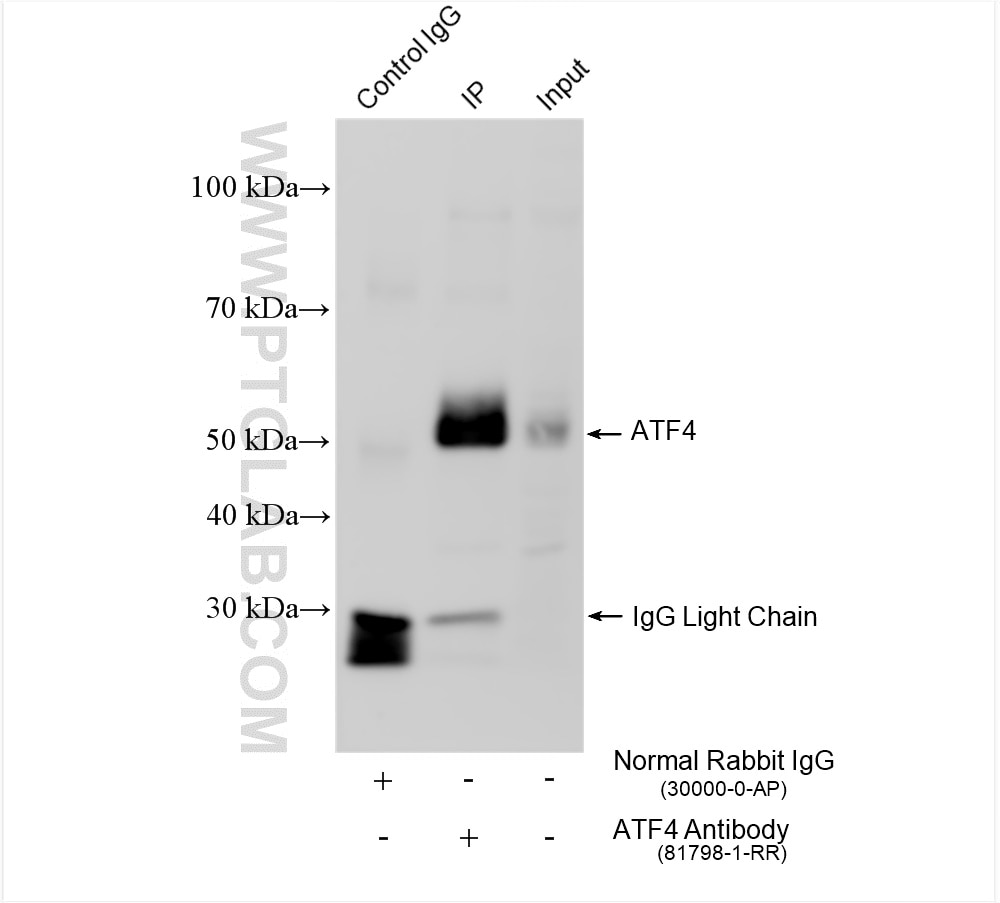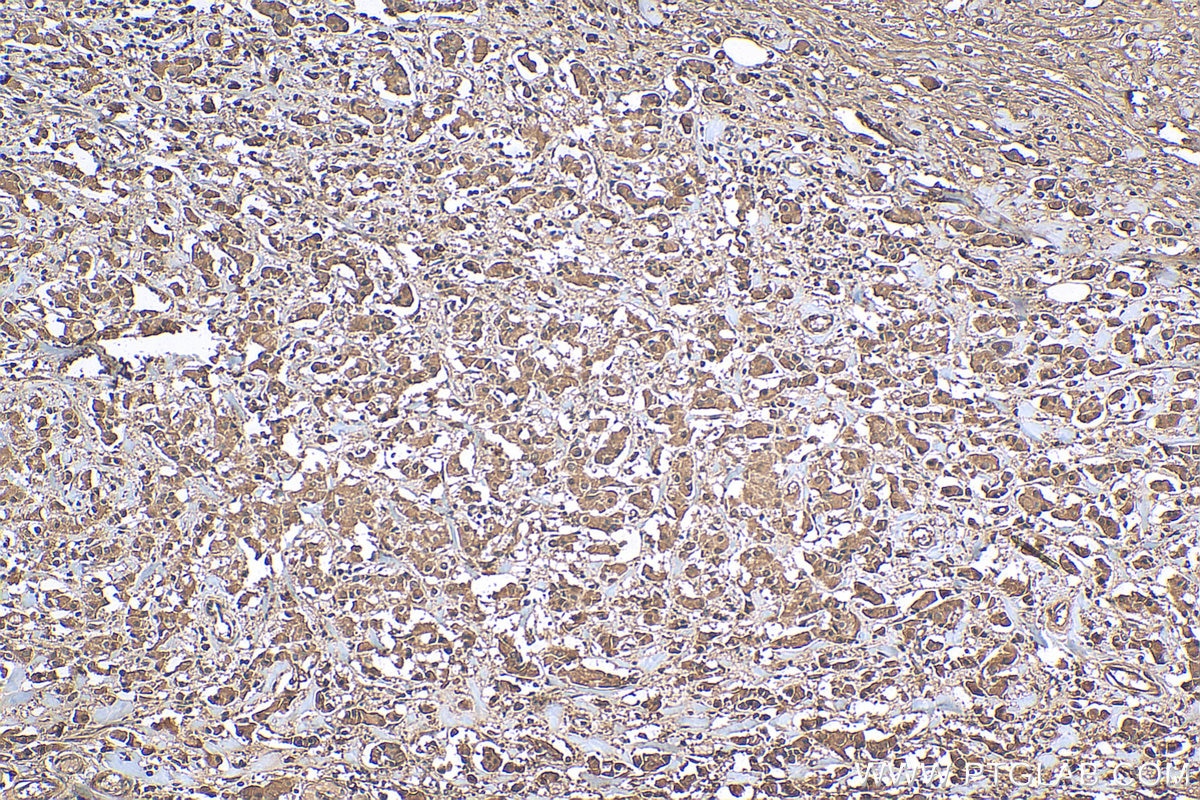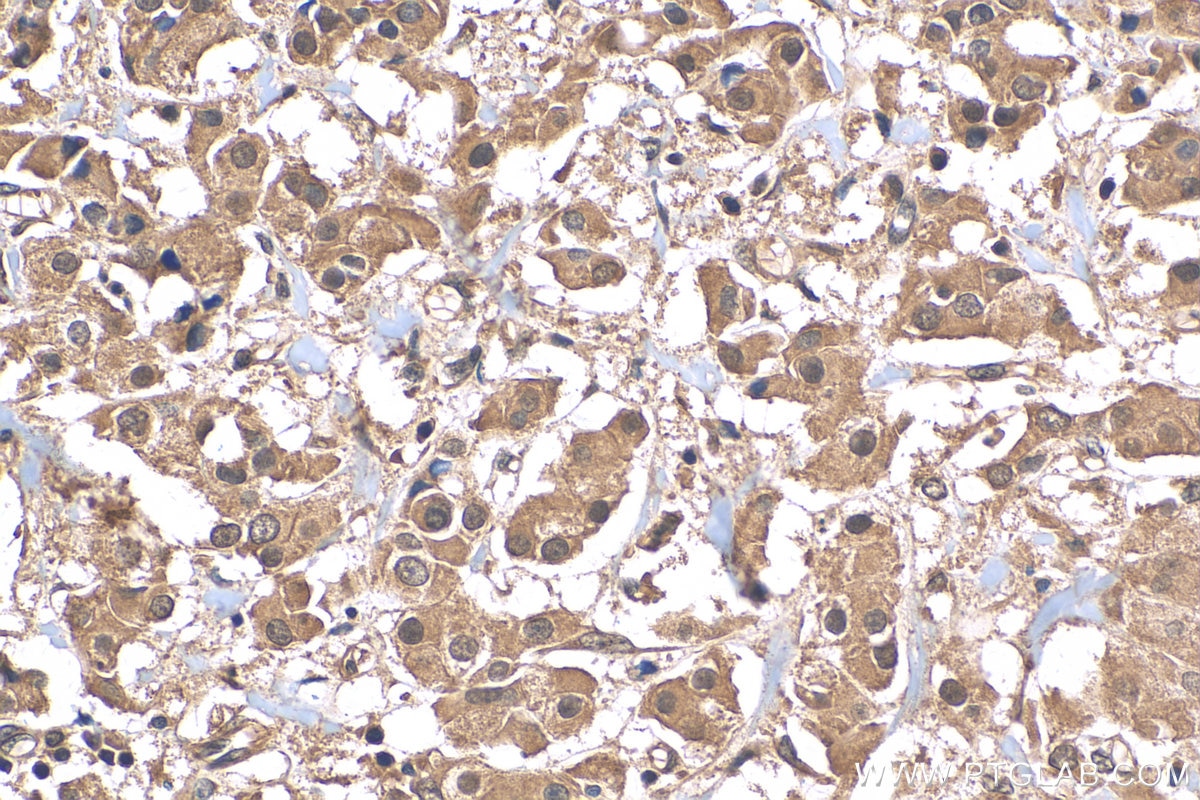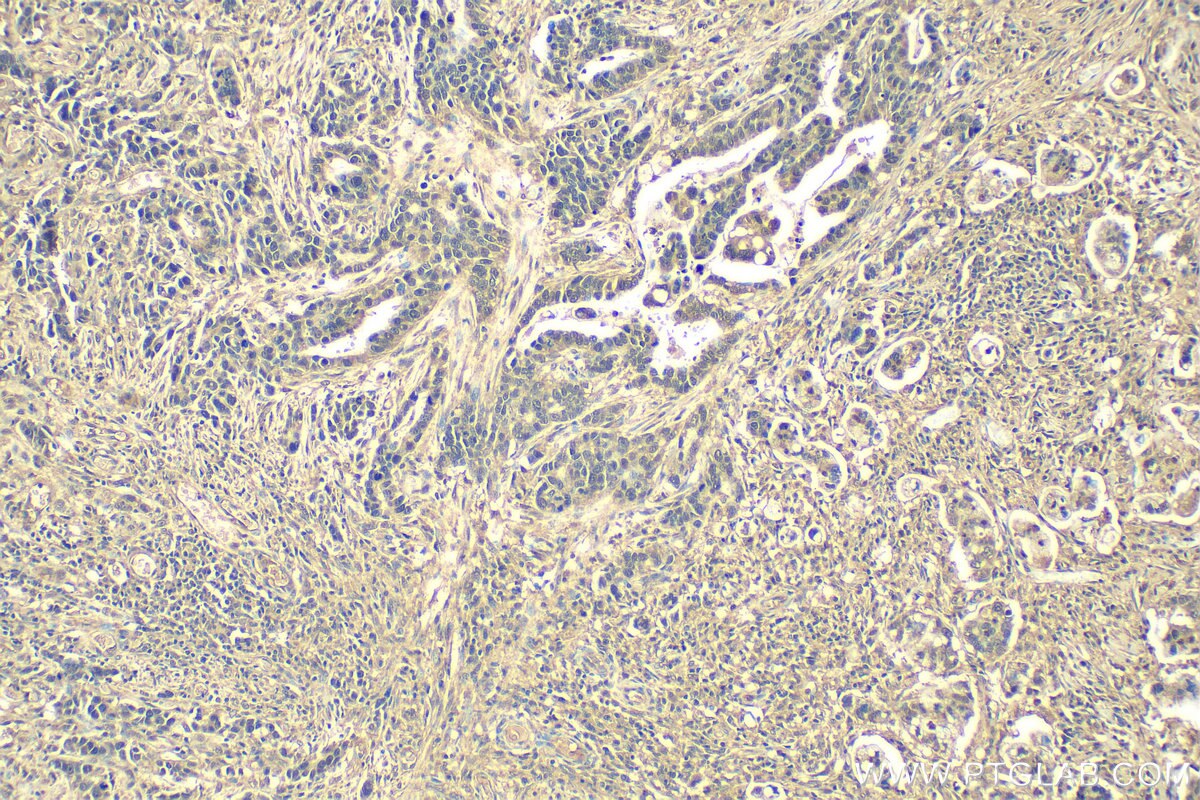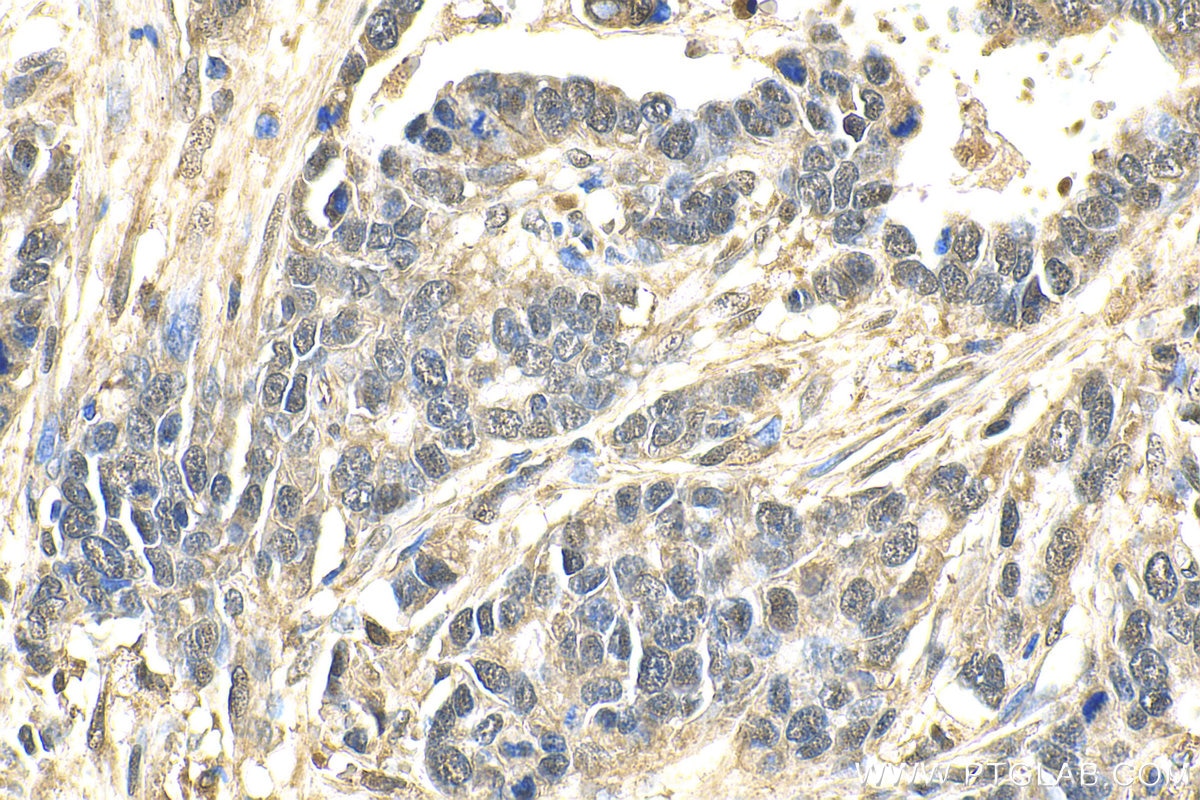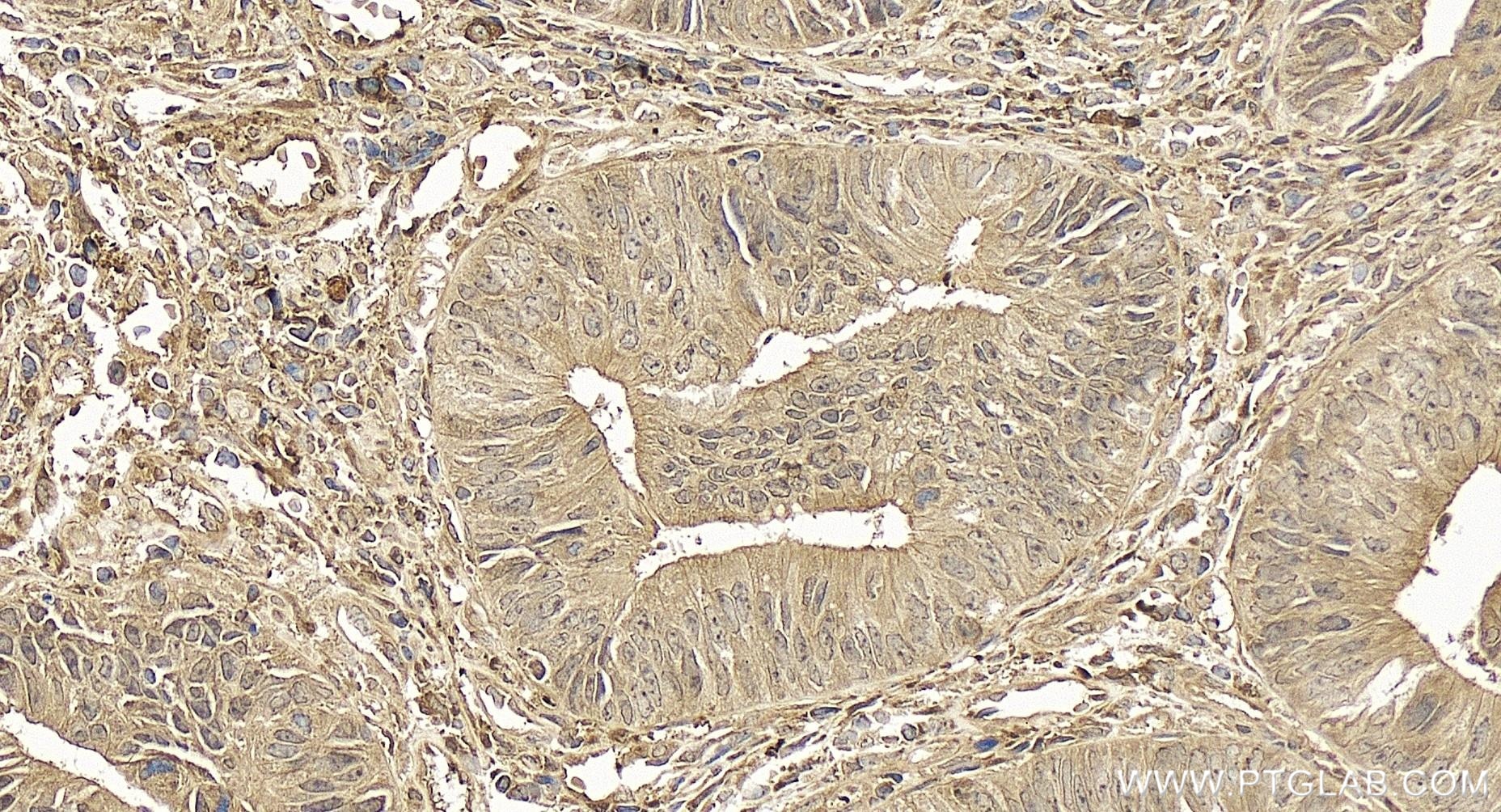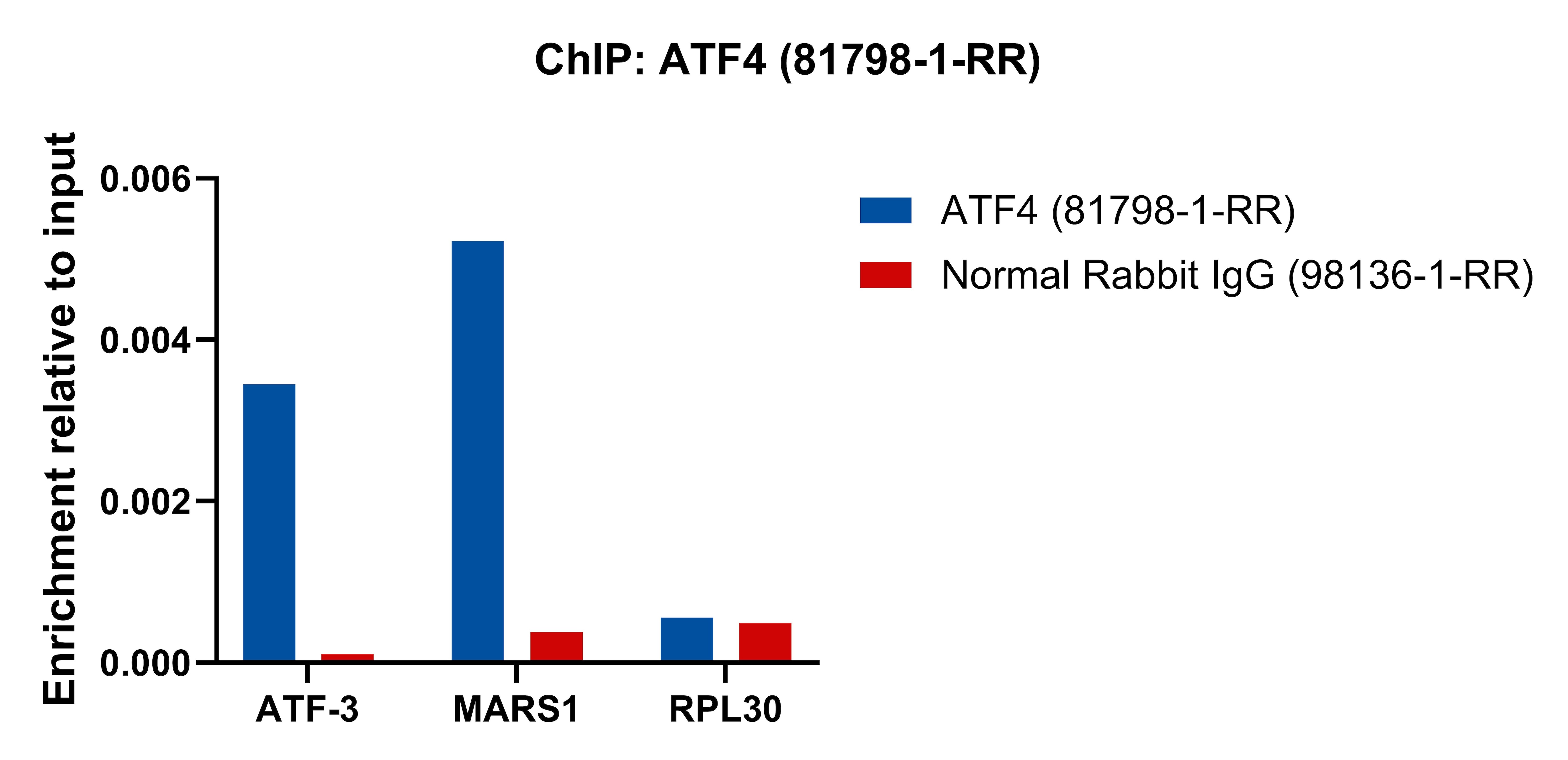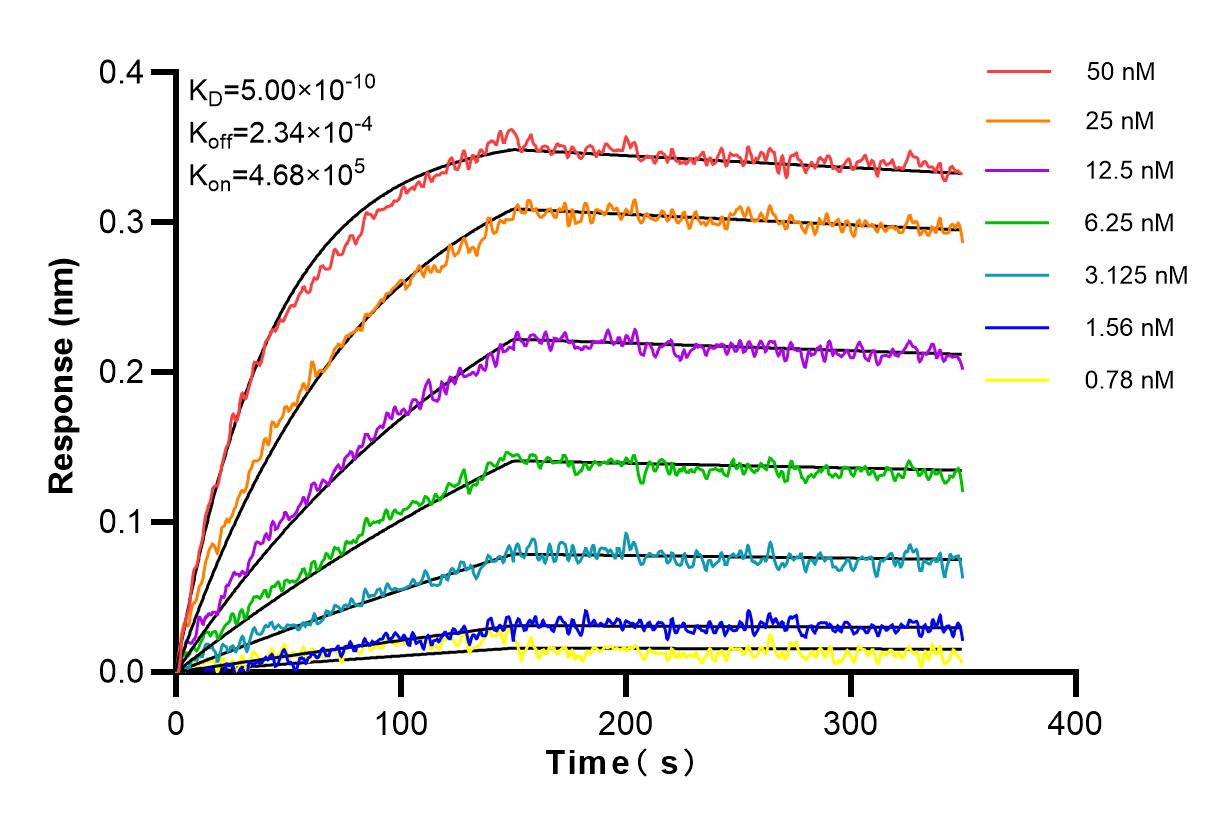ATF4 Rekombinanter Antikörper
ATF4 Rekombinant Antikörper für WB, IHC, IP, Indirect ELISA, ChIP-qPCR
Wirt / Isotyp
Kaninchen / IgG
Getestete Reaktivität
human, Maus
Anwendung
WB, IHC, IP, Indirect ELISA, ChIP-qPCR
Konjugation
Unkonjugiert
CloneNo.
5N3
Kat-Nr. : 81798-1-PBS
Synonyme
Geprüfte Anwendungen
Produktinformation
81798-1-PBS bindet in WB, IHC, IP, Indirect ELISA, ChIP-qPCR ATF4 und zeigt Reaktivität mit human, Maus
| Getestete Reaktivität | human, Maus |
| Wirt / Isotyp | Kaninchen / IgG |
| Klonalität | Rekombinant |
| Typ | Antikörper |
| Immunogen | ATF4 fusion protein Ag1279 |
| Vollständiger Name | activating transcription factor 4 (tax-responsive enhancer element B67) |
| Berechnetes Molekulargewicht | 39 kDa |
| Beobachtetes Molekulargewicht | 50 kDa |
| GenBank-Zugangsnummer | BC022088 |
| Gene symbol | ATF4 |
| Gene ID (NCBI) | 468 |
| Konjugation | Unkonjugiert |
| Form | Liquid |
| Reinigungsmethode | Protein-A-Reinigung |
| Lagerungspuffer | PBS only |
| Lagerungsbedingungen | Store at -80°C. 20ul Größen enthalten 0,1% BSA. |
Hintergrundinformationen
ATF4 is a transcription factor, that accumulates predominantly in osteoblasts, where it regulates terminal osteoblast differentiation and bone formation[PMID: 19016586]. As a basic leucine-zipper (bZip) transcription factor, ATF4 can regulate amino acid metabolism, cellular redox state, and anti-stress responses. It also regulates age-related and diet-induced obesity and glucose homeostasis in mammals, and has conserved metabolic functions in flies[PMID: 19726872]. Due to its location at chromosome 22q13, a region linked to schizophrenia, ATF4 is considered as a positional candidate gene for schizophrenia[PMID: 18163433]. Otherwise, since ATF4 is induced by tumour microenvironmental factors, and regulates processes relevant to cancer progression, it might serve as a potential therapeutic target in cancer. Endogenous ATF4 protein has a molecular mass of 50kd. [PMID: 17726049]. ATF4 can bind DNA as a homodimer and as a heterodimer. ATF4 is ubiquitinated by SCF(BTRC) in response to mTORC1 signal, followed by proteasomal degradation and leading to down-regulate expression of SIRT4, so the molecular weight of ATF4 may be 70 kDa.
